
Using and Growing with Institutional Knowledge Management
- 13 Min read
Create a flexible startup and meet any challenge with FuseBase
Make it happenAs technology continues to advance, new tools emerge to help startups operate their businesses efficiently. Are you looking for the best tools for startups in 2024? Do you want to learn how to operate your business without spending thousands of dollars?
There are many great online resources available for entrepreneurs who want to run their businesses efficiently. Many of these resources are free. However, not every tool will work well for every startup. Some startup tools may even cost hundreds of dollars.
This article covers the best startup tools proven to help small businesses succeed. They also save entrepreneurs from wasting hours trying to figure out how to do something themselves.
If you’re looking for the best startup tools to run your business, then this guide will provide more information about the apps you can use.
A startup tool is an application that helps entrepreneurs manage their business. It’s often used by small businesses to manage or automate tasks, or make it easier to complete certain activities.
Startup software tools help entrepreneurs to create business plans, track progress, manage finances, and communicate with investors.
These tools are a great way for startups to keep track of their daily activities, stay organized, and save money. Startup tools also help businesses grow because they make it easier for entrepreneurs to find funding, connect with customers, and collaborate with each other.
A startup tool helps entrepreneurs plan out their ideas, develop them, and launch them. Startup tools give entrepreneurs access to financial information, customer feedback, and more. Entrepreneurs can easily share their progress with potential investors, partners, and customers.
The best startup tools provide easy-to-use interfaces and powerful features. These startup tools let entrepreneurs quickly set up projects, add tasks, and organize data.
Startup tools are designed to be simple and easy to use. Most startup tools are created using drag-and-drop interfaces.
Here are the benefits business owners can receive from using startup tools.
Many startups struggle to get enough traffic to their websites. A startup tool can help you build a strong brand and increase your website traffic.
Startup tools allow you to spend less time creating spreadsheets and documents. Instead, you can focus on growing your business.
You can easily share files and collaborate with team members using startup software tools.
Startup tools enable you to monitor your progress and see where you stand compared to your goals. This means you can measure your success and improve your performance.
Some startup productivity tools offer features like task lists, reminders, and notifications. These startup tools can help you streamline your workflow, so you can focus on what matters most: running your business.
Most startup tools have built-in accounting capabilities. These accounting apps can help you track your startup expenses, generate reports, and pay bills.
Startup tools can help you organize all of your important documents into one place. You can store any startup data in one location, so you won’t lose anything.
Startup tools can improve your conversion rates by helping you collect leads and convert prospects into paying customers.
Startup tools, such as CRM (customer relationship management) platforms, can help you manage your contacts and communicate with them effectively.
Startup tools can boost your company’s growth by allowing you to automate processes and scale your operations. These startup tools can also boost your company’s growth by allowing you to manage your marketing efforts.
Startup tools can show you which companies are similar to yours and which ones are different. This helps you stay ahead of your competition. That way you can figure out where you can improve and what features you can add to differentiate yourself.
Startup tools can connect you with potential clients through social media channels or email campaigns. By leveraging this feature, you can find new clients and grow your business quickly.
Content is king when it comes to digital marketing. If you’re going to succeed online, you’ll need to produce high-quality content regularly using the most effective startup tools.
Startup tools can make your employees more efficient by automating repetitive tasks. For example, certain startup apps can automatically send emails and schedule meetings. This means that your employees can use their time wisely instead of wasting it on mundane tasks.
If you’re interested in analyzing big data sets, startup tools can be useful. Startup tools can help you analyze customer behavior, identify trends, and predict future outcomes. Also, startup tools can provide analytics that allow you to measure the return on investment (ROI).
Startup tools are usually designed with simplicity in mind. That means any startup app you choose should be easy to use and understand. This way, you’ll get the most value out of your investment.
The categories of startup tools include:
Here are 16 startup tools from seven categories any business owner can use to build or grow a startup.
The content management tools startups use play a key role in creating a professional brand image for your startup. A good content management system gives you the ability to easily update your site whenever you need to make changes.
It provides the option for managing accounts in one dashboard. Content management systems allow you to edit text, images, videos, audio files, and more. They provide a lot of flexibility for startups.
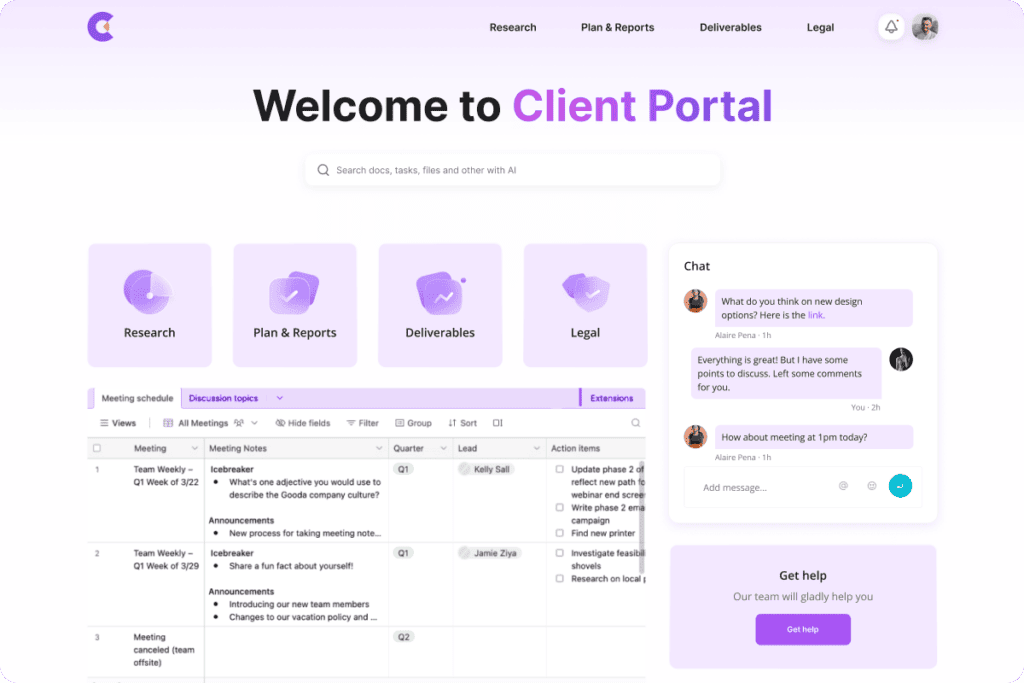
An ideal all-in-one tool, with FuseBase (formerly Nimbus), you have access to a suite of tools to support any startup. With Nimbus Platform, you get more than a business document and content management tool.
Pros
Cons
Pricing
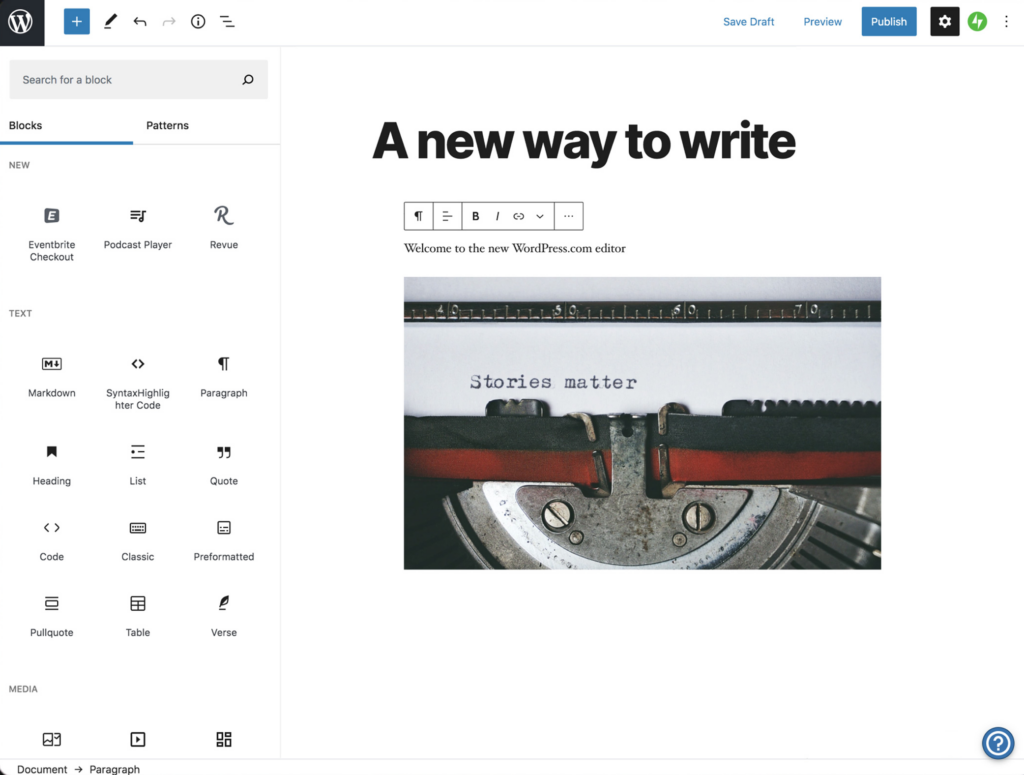
An open source and well-recognized tool, WordPress is a popular CMS hosting platform for content creators and for any startup who wants to establish a presence online quickly. With WordPress, you can create websites in various formats, including an online store, blog, or portfolio. It offers a wide range of plugins that let you customize your site according to your needs.
Pros
Cons
Pricing
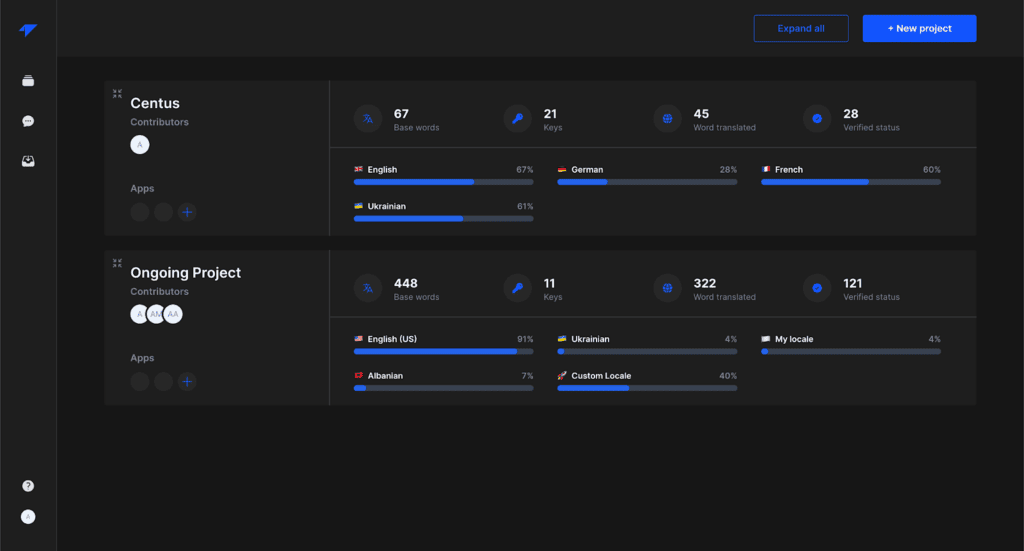
Centus is a one-stop localization management platform that can help startups streamline the translation and adaptation of content for global audiences. Centus offers customizable workflows and powerful automation features allowing companies to localize and ship software products faster.
Pros:
Cons:
Pricing:
Accounting apps help you keep track of your financial information. You can use it to record transactions, generate invoices, pay bills, file taxes, prepare budgets, etc. Some accounting software even allows you to automate tasks, such as sending out invoices automatically. They can be used as startup funding financial tools, which makes them one of the most important tools business owners need to use.
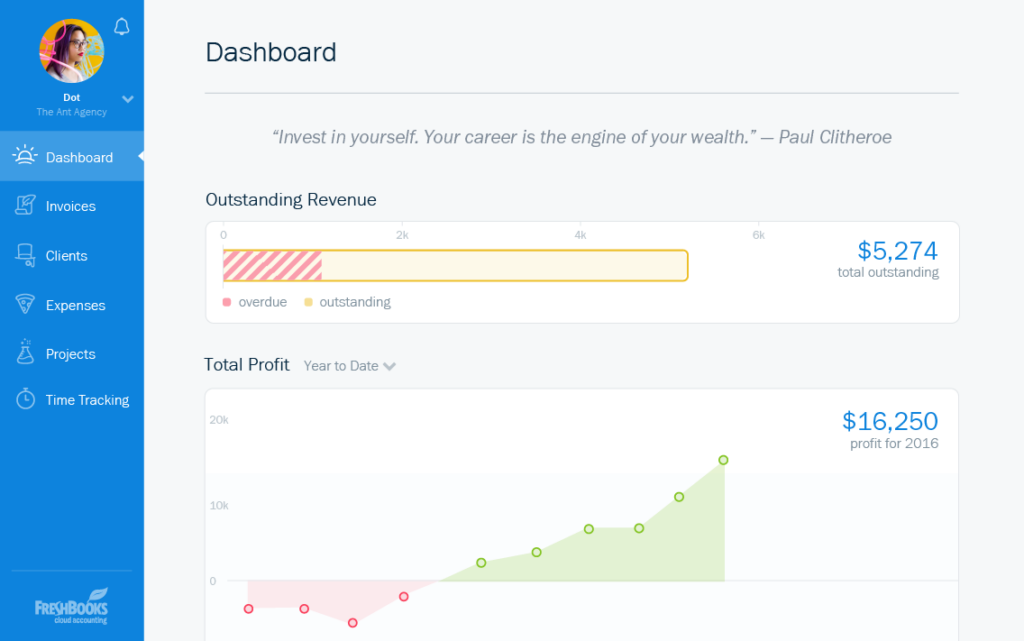
A financial tool that’s easy to use, FreshBooks is a bookkeeping and accounting payroll software. It’s simple to set up and has a mobile version, so you can access all your accounts anywhere, which gives your startup a lot of flexibility.
Pros
Cons
Pricing
The pricing varies based on the features provided, so if your startup needs additional features, you will need to choose a higher plan.
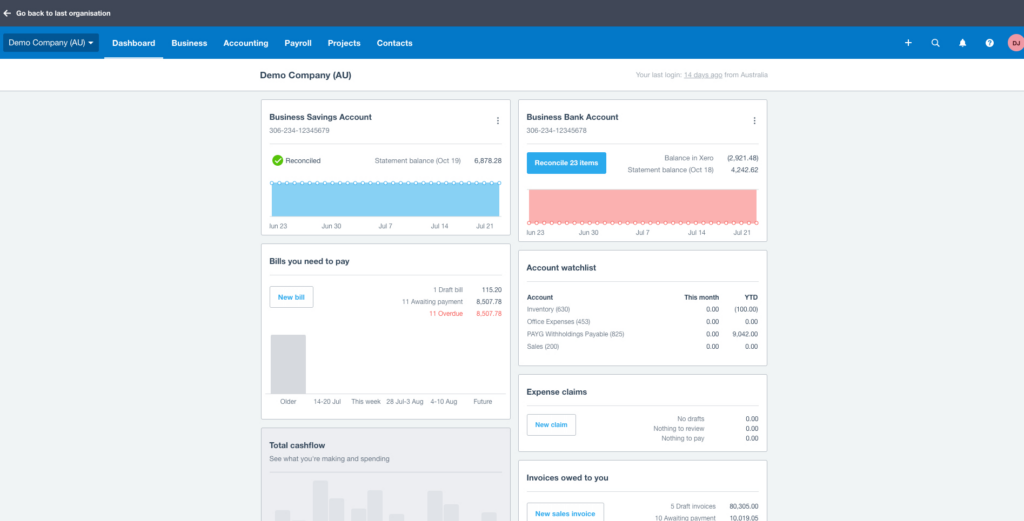
An increasingly popular option for small businesses, Xero is one of the best accounting software solutions. With Xero, you can manage your startup books online, automate bookkeeping tasks, generate reports, track sales and expenses, and much more. It’s a popular option because it offers small businesses pricing options that’s affordable, but still provides advanced functionality.
Pros
Cons
Pricing
Xero is a good accounting software solution for any small business, startup, registered agent, accountant, or bookkeeper.
Any business owner needs to monitor analytics to grow a startup. The right analytics tools allow you to analyze data, identify trends, predict future outcomes, and make better decisions.
With proper analytics, a startup can review and improve their business plan, predict future trends, increase their business credit, change their product offers, and adjust their business insurance coverage as needed.
Analytics tools are valuable startup incorporation tools because they help you understand what’s happening within your business. These tools also give you insight into the performance of your products and services, and how your startup can improve.
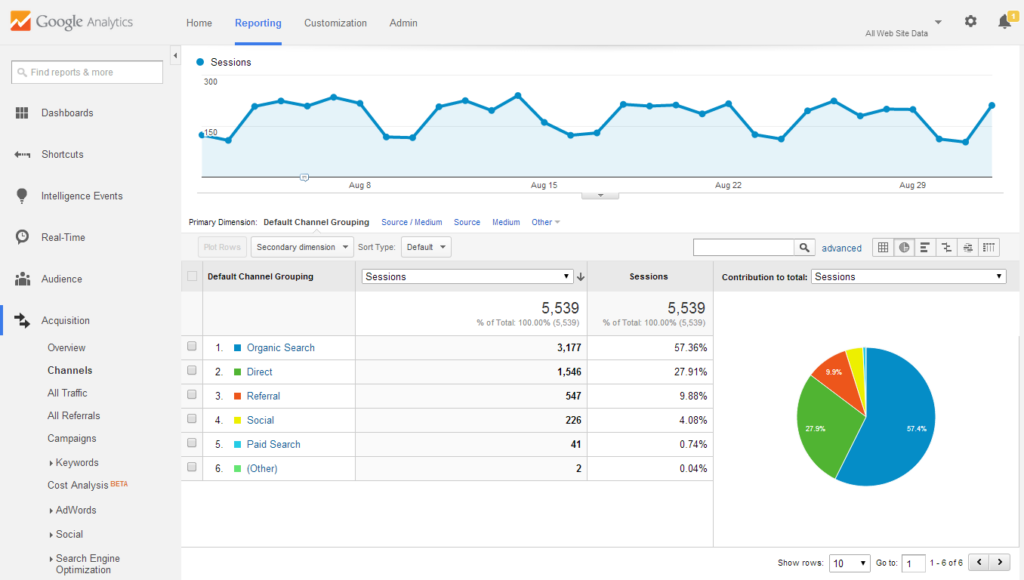
This is a powerful web analytics platform that helps you measure traffic, conversions, and other metrics. With Google Analytics, you can see which pages get the most visits, where visitors come from, and how often people return to your website.
Pros
Cons
Pricing
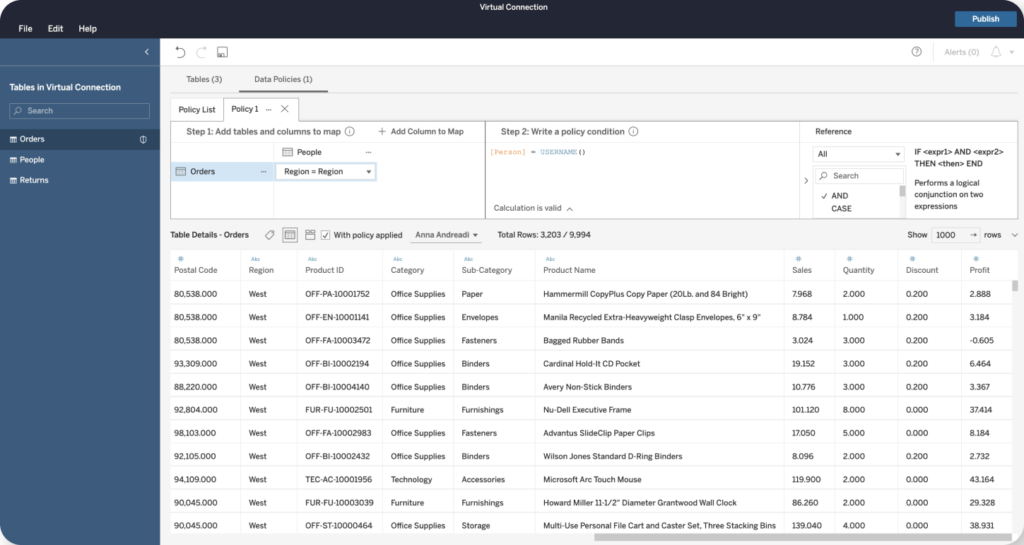
A visual analytics platform, Tableau lets you create data dashboards and interactive maps. You can also share your dashboard with others, which gives them insight into what’s happening in your startup.
Pros
Cons
Pricing
Tableau provides options to fit people and businesses with different data needs.
Design development tools are essential for startups. These tools can include a logo maker for all your logo design needs. When using these tools startups can design websites, logos, brochures, flyers, and more. They also let you edit images, add text, and format documents. Some graphic design tools require subscriptions.
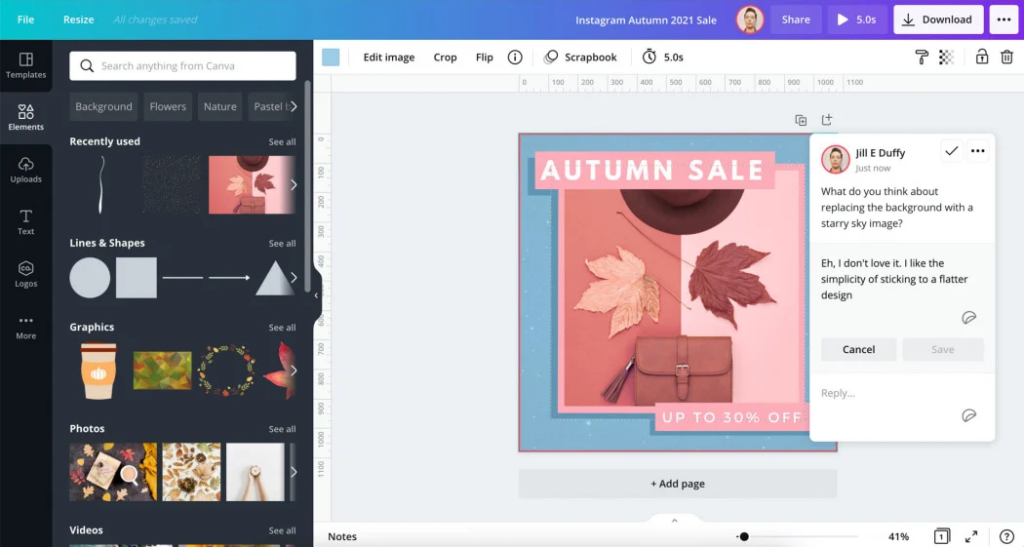
An easy-to-use graphic design tool, Canva allows you to create professional designs for your startup quickly. Any Canva review will reveal it has over 1 billion downloads worldwide, making it one of the most popular graphic design apps. Canva is a popular option for managing social media posts, creating infographics, designing posters, or even a simple business card.
Pros
Cons
Pricing
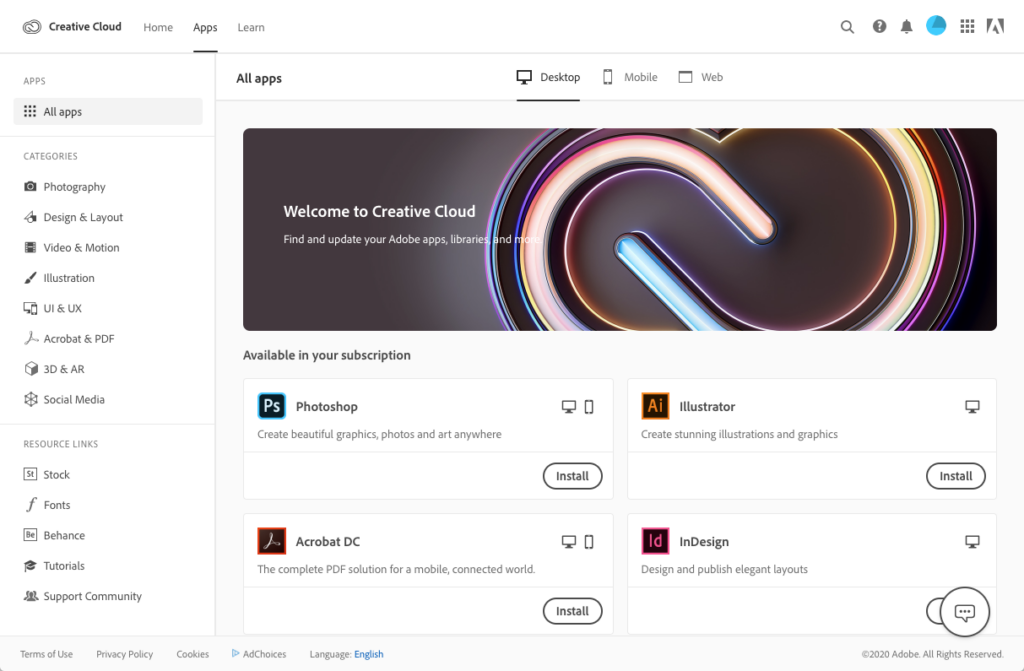
This is a suite of software tools used for graphic design, video editing, website development, and optional cloud services. Adobe Creative Cloud includes Photoshop, Illustrator, Acrobat Pro, InDesign, Premier Pro, and Adobe Express.
Pros
Cons
Pricing
Even though you get a great suite of tools with Adobe Creative Cloud, it’s an expensive option for any startup.
When considering startup marketing tools, there are two main types of tools to consider. The first type includes those that help you manage your email list. The second type includes tools that help you build your brand or startup.
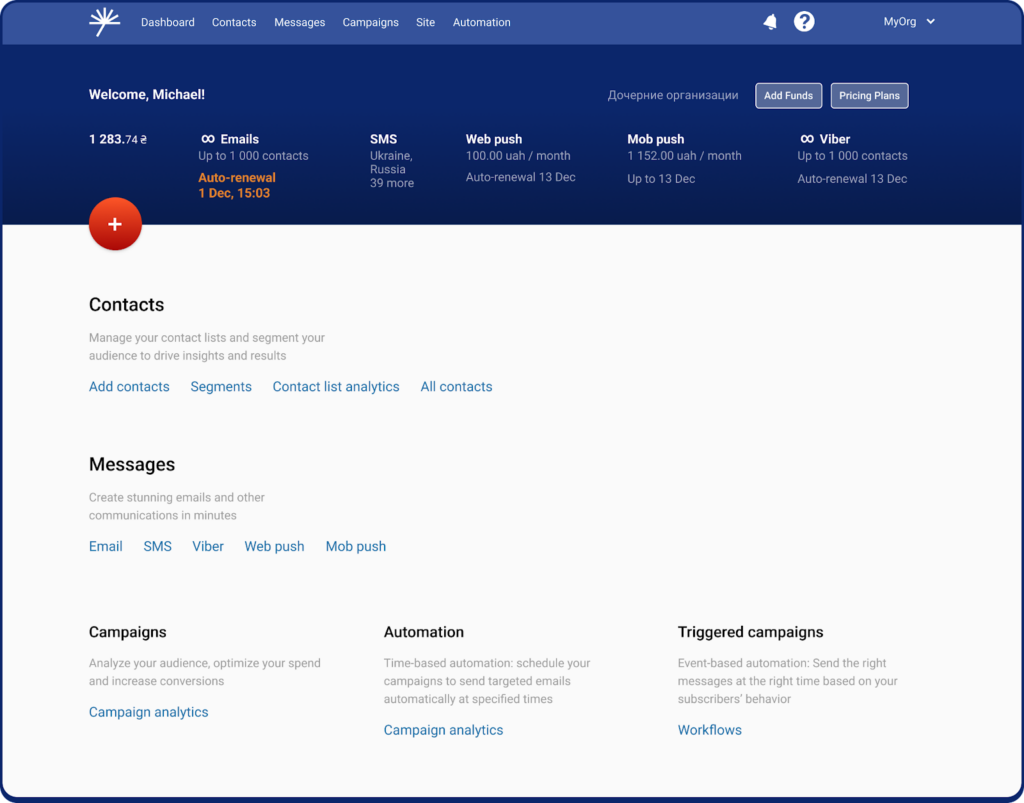
Yespo is an omnichannel customer data platform that offers ready-made tools and campaigns for medium-sized e-commerce. The system provides opportunities to increase the profit from communications with customers on the website and in the mobile app through email, SMS, Viber, web and mobile push, app inbox, in-app, and pop-up.
Pros
Cons
Pricing for email
Pricing for CDP

Being able to manage social media profiles is essential to building any startup. Hootsuite helps you manage multiple social media accounts from one place. This allows you to post content across different platforms simultaneously.
Hootsuite is ideal for startups because it integrates with many other tools and social media networks.
Pros
Cons
Pricing
There are many startup productivity tools and project management software available today. Some can even be used as startup networking tools for more collaboration with team members and potential clients, investors, or partners.
With many productivity suites, you can easily track tasks, projects, and milestones. There are also some tools that allow you to collaborate with others on any startup project.
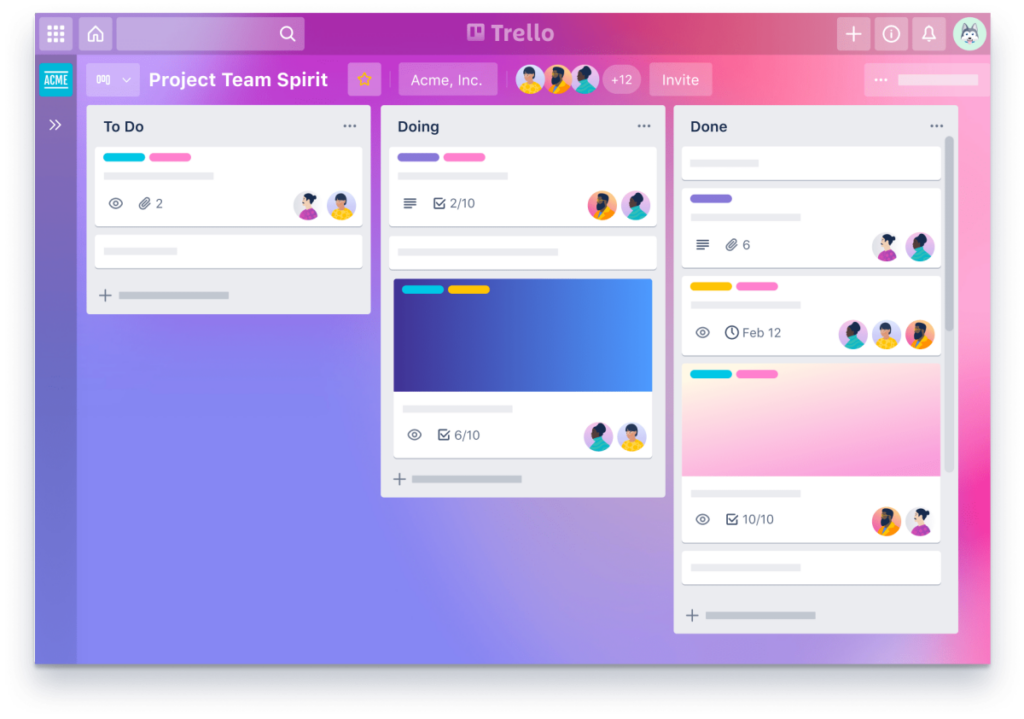
A simple, yet powerful project management tool, Trello is easy to set up and use. With Trello, you can organize your projects by boards. Boards can contain cards, which represent individual tasks. Cards can be assigned to specific people.
With Trello, you can also assign due dates to each card. It also lets you create checklists, so you can keep track of things like steps in a process.
Pros
Cons
Pricing
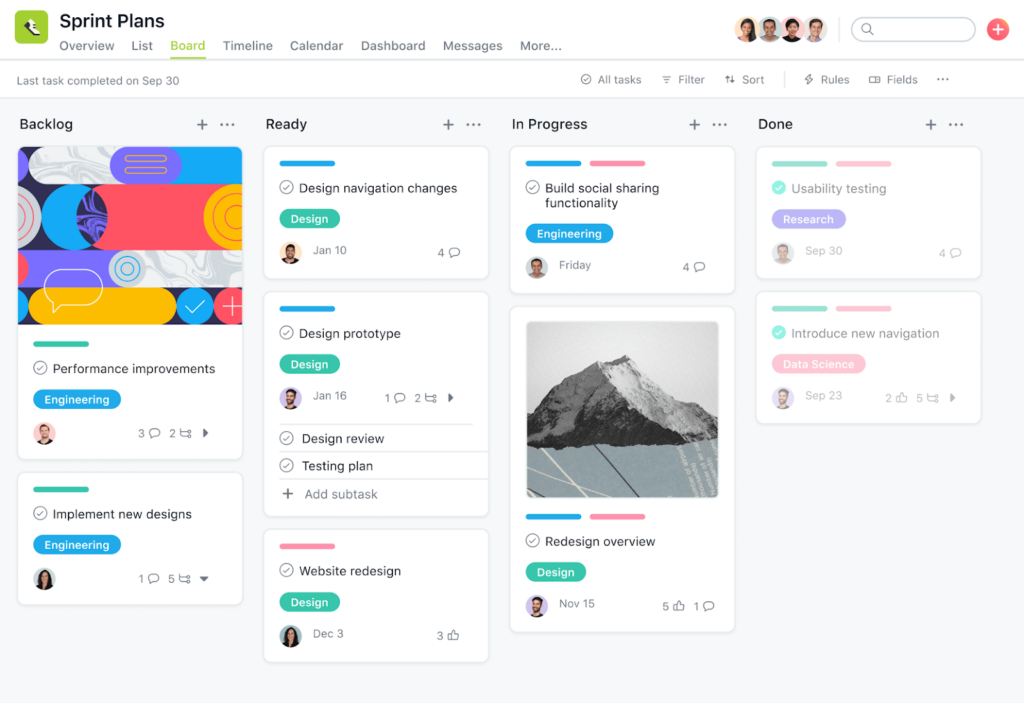
An all-in-one project management tool, with Asana, you can plan projects, manage tasks, and share files.
You can create projects, assign them to individuals, and then break down those projects into subtasks. Tasks can be assigned due dates, and you can also attach notes and comments to them. You can also view progress on tasks and see when they were last updated.
Pros
Cons
Pricing
Having tools to communicate with team members and customers is essential for any startup. You need to stay connected with everyone involved in your business. This includes keeping in touch with your current customers, potential customers, and other stakeholders.
Communication tools include video conferencing and messaging.

As one of the leading tools in virtual communication, Zoom is a popular option as a collaboration tool. It allows you to connect with others via webcams, voice calls, and text chats.
Zoom has an extensive list of integrations that allow you to easily integrate it with other applications. For example, you can link your Zoom account to Gmail, Google Calendar, Slack, Microsoft Teams, and more.
Pros
Cons
Pricing

Another popular option for communicating with people around the world, WhatsApp is easy to use and works on all major operating systems, including Windows, macOS, iOS, and Android.
WhatsApp offers two-way audio calling and group chat capabilities. You can share photos, videos, documents, and links through WhatsApp.
Pros
Cons
Pricing
Data protection tools are essential in today’s business environment, where data breaches, ransomware attacks, natural disasters, and hardware failures can have catastrophic consequences. Such apps are designed to safeguard your information against various forms of loss or corruption. Backup and disaster recovery software can help startups maintain business continuity by quickly restoring data and systems in case of a disaster.
When startups must comply with various regulations and industry standards that require them to keep their records safe, data protection tools can help them meet these compliance requirements by ensuring information is stored, handled, and protected according to these standards.
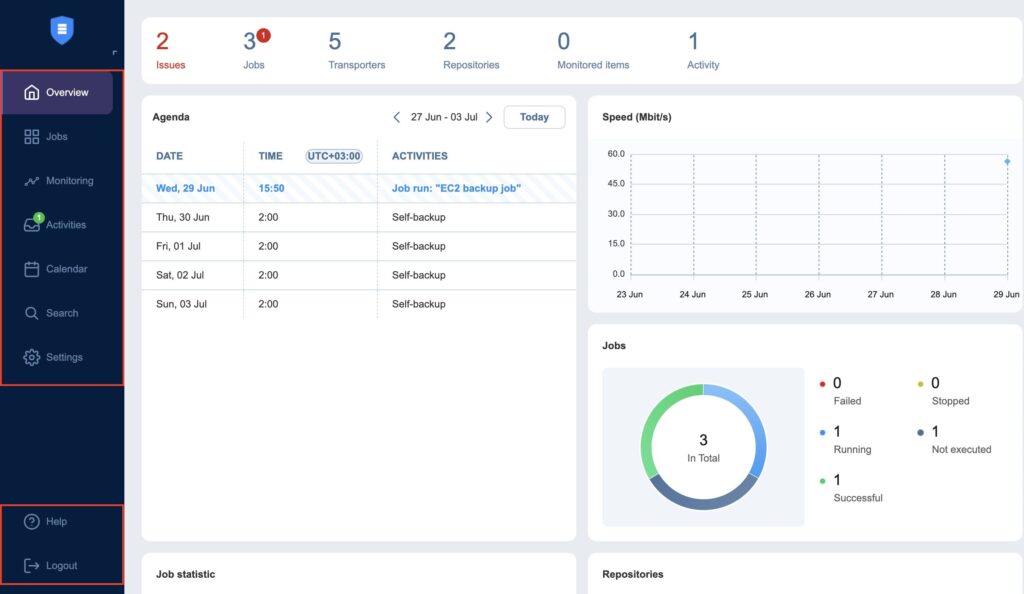
NAKIVO Backup and Replication offers a reliable and affordable data protection solution for virtual, physical, cloud, and SaaS environments. With its comprehensive backup features, businesses of any size can easily protect their crucial data and applications. This software supports multiple virtualization platforms such as VMware vSphere, Microsoft Hyper-V, Nutanix AHV, and Oracle VM, making it an inclusive backup solution.
Pros
Cons
Pricing
The company also offers a free trial and a quote-based custom plan for larger enterprises.
In conclusion, if you’re looking for ways to improve your startup, these tools will help you operate your business better than ever before. The best part is you can get started with most of them today!
For any startup, maximizing efficiencies will always be a key business driver. One way to do that is by adopting asynchronous work. Knowing how to leverage institutional knowledge management can make a difference to how you operate your business. In one of our atricles, learn the importance of institutional knowledge and how you can build an institutional knowledge base.
Find out how FuseBase (formerly Nimbus) can help you with building up your perfect knowledge base.
Get expert advice on choosing the best tool!
If you found this article helpful, please share it so others can benefit too.
Check out FuseBase’ Twitter page for the latest articles and updates!
Disclaimer
Parties other than FuseBase may provide products, services, recommendations, or views on FuseBase site (“Third Party Materials”). FuseBase is not responsible for examining or evaluating such Third Party Materials, and does not provide any warranties relating to the Third Party Materials. Links to such Third Party Materials are for your convenience and do not constitute an endorsement of such Third Party Materials.
Found it useful? Share the article with your community
Get weekly tips and insights on how to grow your business